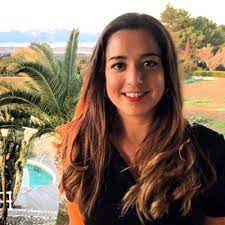Science Diplomacy: speak ‘science’ and enter
Science Diplomacy is a new discipline that combines science, technology and international relations to meet global agendas, increase prosperity and promote understanding between countries, regions and societies.
Concordia, the ancient Roman goddess of harmony, was the inspiration behind the Italian-French research facility in Antarctica, the only joint base in this isolated continent. The concept of ‘harmony’ was not chosen lightly, as it is the foundation for diplomacy and science.
Throughout history, science and technology have gone hand in hand with foreign relations. A remarkable example is the flow of people, goods and ideas along the ancient Silk Road that allowed the spread of cultures and technologies, such as innovative crop irrigation systems and the Chinese secret paper manufacture technique. More recently, the Apollo-Soyuz docking —the famous space handshake between Russia and the USA during the Cold War— was a milestone in peace-building in the name of science.
In the 21st century, however, globalisation has spurred the need for science to be at the core to answer collective policy issues: climate crisis, biodiversity loss, animal-borne diseases, pollution, waste, food and water scarcity… These worldwide challenges not only cannot be tackled by a single nation but also demand a scientific, rational and verifiable approach to advance humanity. It is in these context that Science Diplomacy comes to be. It is a discipline that combines science, technology and international relations to meet global agendas, increase prosperity and promote understanding between countries, regions and societies.

Science diplomacy is crucial to address some of the most pressing global challenges. We, at CREAF, see the value of multi-stakeholder cooperation—between diplomats, policy makers, scientists, and the private sector—and want to contribute to a better understanding of the role of science beyond research in our current world.
ALICIA PÉREZ-PORRO, scientific coordinator at CREAF
With a global perspective, CREAF strives to find scientific, practical solutions to challenges in the natural environment, such as land use, biodiversity, resources or nutrient cycles. All of which urgent and appearing at a large scale. In this sense, combining research, dialogue and cooperation CREAF aims at giving value to Science Diplomacy and Environmental Diplomacy.
Partially stemming from science diplomacy, environmental diplomacy deals —in its primary, theoretical sense— with environmental issues only. Yet in reality, the underpinnings of this speciality spread well beyond its obvious boundaries. Land ownership, food and water security, population growth, and so on. They all fall under the realm of environmental diplomacy, with nearly half of international conflicts related to natural resources and the environment. Thus, “the broader environmental diplomatic agenda should not be exclusively viewed through the lens of climatic change” (Lawrence E. Susskind and Saleem H. Ali).
The four aspects of Science Diplomacy
Standing at the intersection of science and foreign relations, Science Diplomacy takes the best of both worlds to work under four intersecting aspects:
- Diplomacy for science
- Science for diplomacy
- Science in diplomacy
- Anticipatory science diplomacy
“When nations come together to negotiate cooperative agreements on fisheries management or infectious disease monitoring, they need scientific expertise. When scientists come together for complex multinational projects in astronomy or physics, their nations devise diplomatic agreements on management and financing. And when political relations between two nations are strained or broken, joint research efforts can give them a way to keep talking – and to build trust” (UN-TWAS, the world academy of sciences for the advancement of science in developing countries)
Diplomacy for science
With diplomacy being any interaction that affects relationships between nations and societies, its practice requires cross-cultural dexterity and interpersonal and negotiation skills. When put at the service of science, diplomacy can help scientists gain access to funding, people, infrastructures or resources. It can even facilitate major scientific endeavours that would be insurmountable for single nations.
This is the case of the ALMA international astronomy centre in Chile or the pan-European nuclear research organization CERN, where pools of nations came together to support these colossal scientific facilities.
Science for diplomacy
Science is both a body of knowledge and a process of discovery that is universal, rational, transparent and impartial and underlies opportunities for world problems. As such, it is a natural ally to diplomacy, because science doesn’t pass judgement and offers a non-ideological stage for even enemies to work together. In turn, cooperation between confronting societies can ease the tension and open the way to discussing other less scientific issues.
The Transnational Red Sea Center is one example of science as a soft power to unite the Red Sea countries under a common goal: to save the last coral refuge on Earth. Despite their historical geopolitical conflicts, science provides a safe space for peaceful dialogue.
Science in diplomacy
Foreign policies and international agreements can benefit from scientific input, with know-how and evidence to support them. For instance, the Intergovernmental Panel on Climate Change (IPCC)’s Fifth Assessment Report on human-induced climate change informed the discussion that led to the Paris Agreement in 2015.
Science in diplomacy also helps manage transboundary resources (e.g., migrating animals) and global commons (e.g., Antarctica) and govern international shared spaces (e.g., the Arctic).
Anticipatory science diplomacy
With the ever-rapid development of frontier technologies —such as AI or climate-altering techs— the international community needs to put on its proactivity cap. By foreseeing the potential benefits and risks of scientific and technological breakthroughs, nations can draw together a blueprint to develop legal frameworks to regulate them and help manage their geopolitical, ethical and societal implications before they become readily available.
In order to understand a distinguishing case in Science Diplomacy, let’s go back to the beginning: to Concordia and Antarctica. This white continent is one of the most inhospitable corners of the Earth, extremely cold and dry, isolated and mostly uninhabitable. However, it is one of the few terra nullius —no one’s land— of the world waiving the ultimate white flag.
Surprisingly enough, Antarctica’s extreme uniqueness is what makes it the quintessence of international scientific cooperation and environmental protection. Under the Antarctic Treaty (1957), signing parties are devoted to peaceful scientific investigation and the conservation of Antarctica’s territory and natural resources, recognizing that it shall not become the scene or object of international discord.
For six decades, science diplomacy has been the gold key that keeps the vault of international research and peace open, carefully managing the thorny issue of territorial claims on this distant continent.

The interconnectedness of ecosystems and the need for science-informed cross-border cooperation makes knowledge exchange, networking and trust-building essential to strengthening partnerships and promoting regional integration through the shared language of science.
MARGA GUAL SOLER, senior Science Diplomacy advisor at CREAF
As we have touched upon along these lines, the universal language of science has the power to ease tensions, thaw frosted relationships and even fuel society’s development. Historically crisscrossing foreign relations, science now needs to be the steering wheel for diplomats to navigate the unsettled waters of our world.







